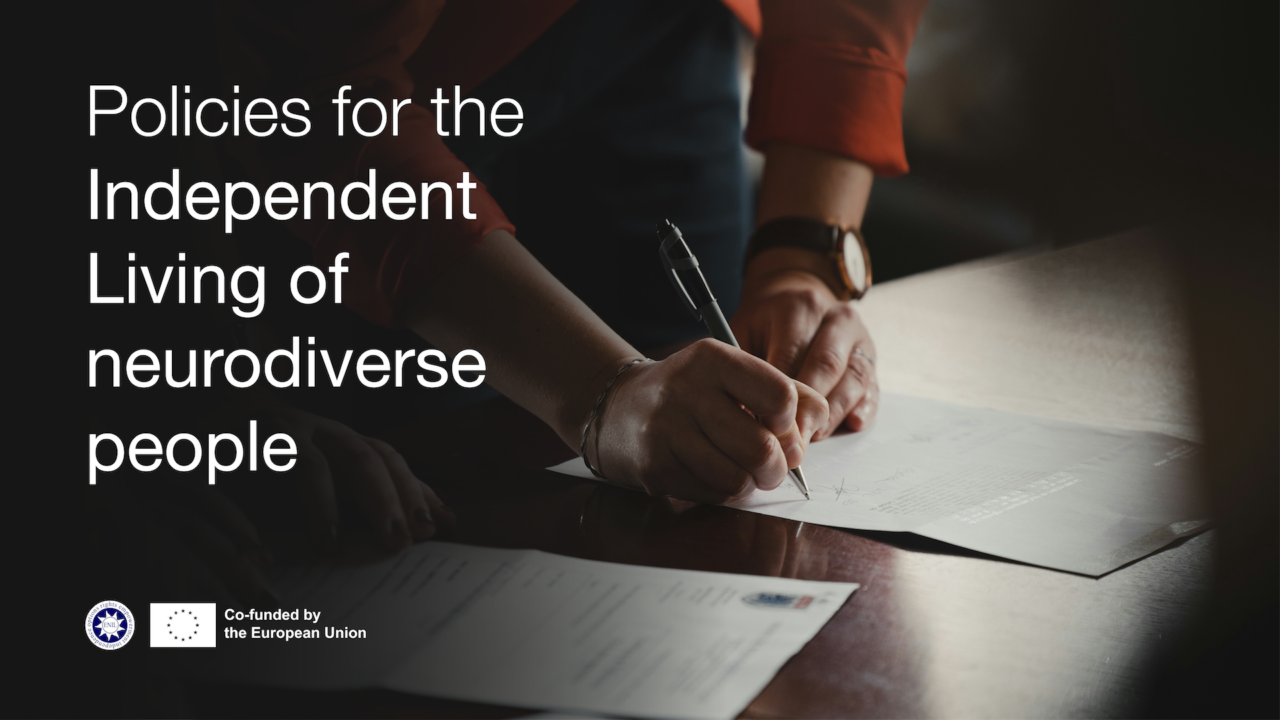By Florian Sanden, florian.sanden@enil.eu
As a person with at least two neurodiverse conditions, neurodiversity pride day is a special occasion for me. Two weeks ago, a politician in Germany accused the chancellor as autistic and meant it as an insult. For me only the intend was insulting, not the term as such. Neurodiverse conditions can bring challenges, it is true, but they also hold advantages. Like the term says, neurodiversity is part of human diversity. With our unique qualities we contribute to the enrichment of society. I am a proud of my neurodiverse identity.
I am both part of the neurodiversity movement and the cross-disability movement. During the last decade, neurodiverse self-representatives have gained a lot of confidence and we are advocating for our topics. For example, we argue for the right to self-diagnosis or the need to change the focus of medicine away from trying to cure autism to addressing co-morbidities like mental health or gastro-intestinal issues.
This is a very positive development but we must take care not to become isolationist. We need to remain aware of the fact that we are disabled and that we are prevented from equal participation in society by the same barriers as all other disabled people. Some don´t like to regard neurodiverse impairments as disabilities because our conditions are not illnessses. That view is correct. Our impairments are not sickness. They only become disabling in interaction with the barriers created by society. We all have the right to participate in politics. It is not hard to guess what the chances are of being elected to office as an openly autistic candidate when calling someone autistic is accepted by society as an insult.
Independent Living is about having the same level of self-determination, the same access to all the areas of life on a level equal to others. A huge barrier to this are the difficulties of getting support and benefits. In many places, for example in Belgium or Finland, it can be very difficult for neurodiverse people to be recognised as disabled. This is because the definitions of disability are based on certain types of impairments, not on so called invisible disabilities such as autism and adhd. Without being recognised as disabled, there is no access to disability support services or benefits, like the personal budget or cost of living support.
In the Belgium region of Flanders, disabled people can apply for the personal budget at the Flemish Agency for Persons with Disabilities. With the personal budget, it is possible to purchase services such as individual psychological support, individual practical help in specific areas of life for example at work or general individual support from a wide variety of providers. In practice, the personal budget is only given to people who are considered to have very high support needs. People with neurodiverse impairments stay on the waiting list for up to 20 years, if they get the personal budget at all. For no, the Flemish government is not willing to provide the funds necessary to allow everyone who passes the eligibility assessment access. In other places, authorities show more budgetary flexibility but still focus more on being gate keepers than providing help. I am aware of the case of an older autistic man from Berlin who lost his personal budget because he went away to see his family. Authorities are also taking his minimum income and now he is at risk of homelessness.
Many of us are painfully aware of all the discrimination occurring at work. Estimates indicate that in the EU only 10% of autistic people are in employment. When they have work, conditions tend to be more unstable than for others. I am aware of many accounts of autistic people loosing their job due to discrimination.
The European Network on Independent Living is lobbying the European Union to adopt policies in support of change. This year the European Commission will bring out Guidance to Member States on Independent Living and Inclusion in the Community and a Framework on Social Services of Excellence for Persons with Disabilities. ENIL has provided extensive input to both initiatives. We are calling for an access of all disabled people to assistance services without waiting lists and which are needs-based so than one can receive support however it is needed. ENIL is highlighting the various problems when it comes to accessing services. We are asking the European Commission, to give a clear statement to its member states that disabled people of all impairments have to be recognised as disabled and given access to support. We need fairer and more transparent procedures. Disability agencies need to become more accessible. We are asking the European Commission not to be shy and aim for binding legislation on Independent Living.
To combat discrimination at work, there is the employment equality directive. There are many indications that it is not strict enough to fullfill its´ purpose. For example, employers rather risk conviction in court and pay the fine than hiring disabled people. So far the European Commission has ignored calls for a reform but ENIL will keep pushing.
I invite all neurdiverse people to get involved at ENIL and support us in our struggle. A great opportunity to do so is this years´ Freedom Drive. This event will take three days, from the 23rd to the 25th of September and involves a programme with workshops, a conference, a hearing in the European Parliament and a protest. We expect several hundred disabled participants. I am hoping to see you there.
Neurodiverse greetings!



